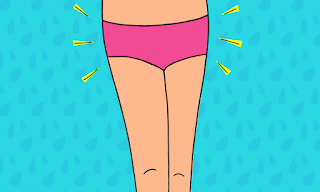ADHD: Do girls and boys exhibit the same characteristics?
Most teachers would describe a student who has ADHD as hyperactive and restless, always fidgeting, interrupting others, running around the classroom, and always getting into trouble. These are typical characteristics--of boys with ADHD.
ADHD in GIRLS.
- Half of girls who have been diagnosed with ADHD are the "predominantly inattentive" type, which is described as forgetful, easily distracted, they appear to be in their own world, and often do not follow directions and make careless mistakes.
- Girls who have symptoms of hyperactivity are less likely to run around the classroom and more likely to be constantly chatting.
- Compared to boys who have ADHD, girls are often less defiant
- Girls are less likely to receive the help that they need.

- Team up with your child's school teacher and school level supports:
- Develop a communication plan with your child's classroom teacher in order to have a consistent reinforcement plan at home and at school.
- Having a log of behavior progress is often helpful to find patterns of where and when problems with attention or learning may be occurring.
- Be consistent and be patient: behavior plans take time, work with the teacher to reinforce positive behavior
- If there is no progress, request an evaluation:
- If your daughter has been going to school (*good attendance), has no concerns with vision or hearing, and has been provided with school level supports (i.e. communication log, check-in with the school counselor or teacher for backpack check or daily behavior reports), and no progress has been made in her behavior then parents can ask the school for an evaluation
Help and hope for girls with ADHD
http://www.greatschools.org/gk/articles/understanding-girls-with-ad-hd-symptoms-and-strategies/
Researchers have found, for example, that because a girl’s outward behavior can mask her ADHD, having her answer certain questions (self-reporting) can help make a proper diagnosis. Professionals have also found some methods that are especially effective for managing ADHD in girls, including:


Comments
Post a Comment